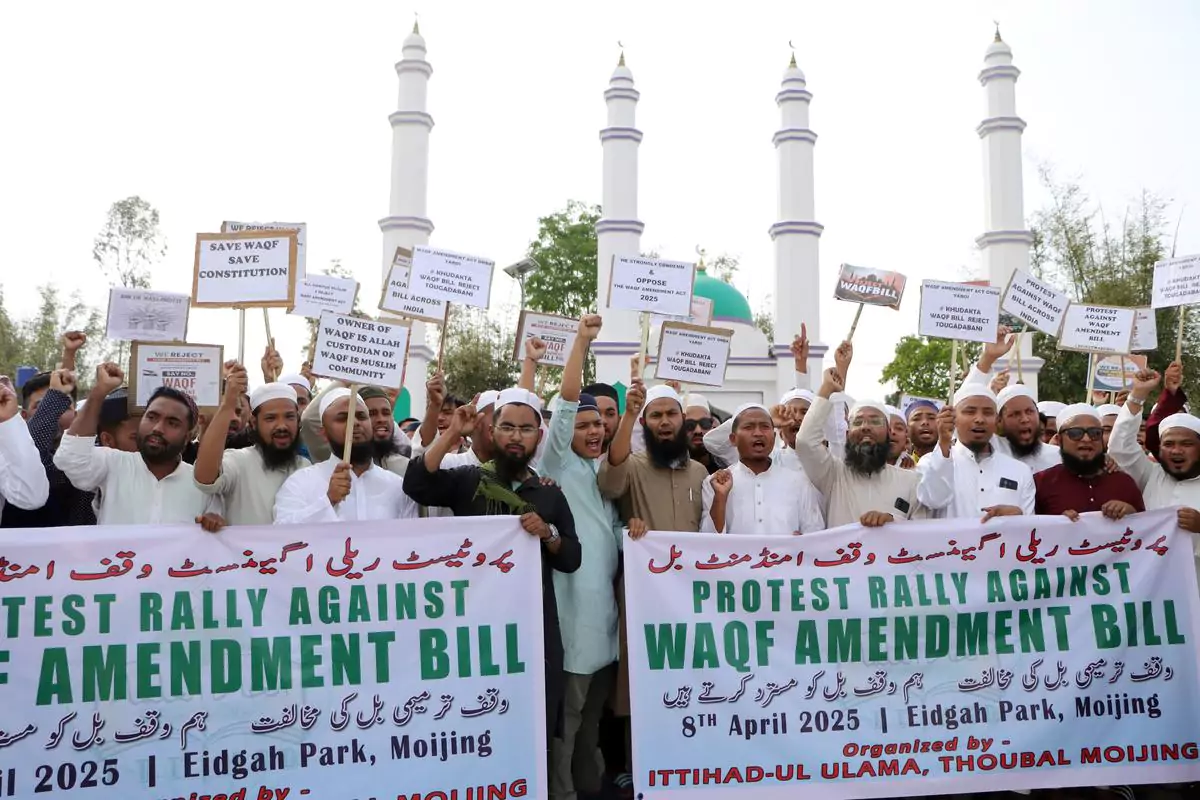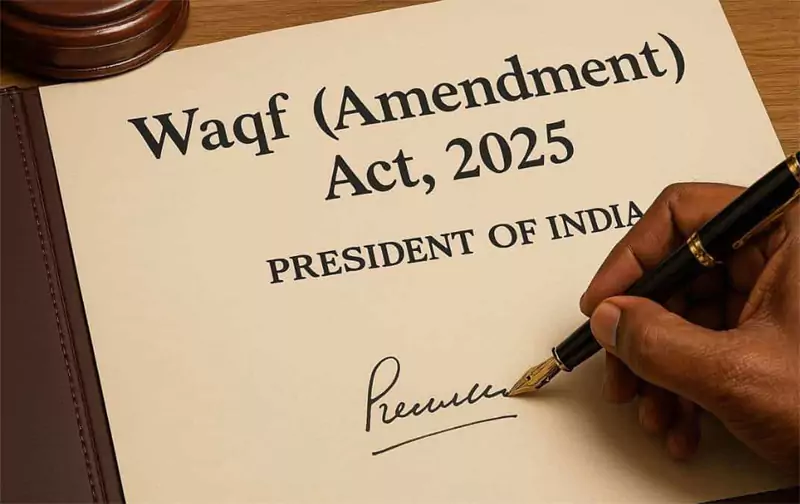Challenge to the Waqf Act 2025
The Waqf (Amendment) Act, 2024, introduced as a reform measure, has been severely criticized by legal scholars, civil society, and minority groups. It is alleged to be a case of legislative overreach, undermining the constitutional guarantees granted to religious minorities under Articles 25 and 26 of the Constitution.
Constitutional Issues Raised
Violation of Articles 25 & 26
- Article 25 guarantees freedom of religion.
- Article 26 ensures religious denominations the right to manage their own religious affairs, institutions, and property.
- The Act is seen as eroding religious autonomy, particularly of the Muslim community.
- Critics argue that rights are being diluted under the guise of
reform.
Supreme Court Precedents Ignored
- Judgments like Ratilal Gandhi and Tilkayat Govindlalji Maharaj established that the state cannot interfere in the internal affairs of religious denominations.
- The 2024 Amendment is seen as directly violating these
precedents.
Key Provisions Criticized
Section 11: Undemocratic Composition of Waqf Boards
- Mandates that all members of state Waqf Boards be nominated by the State Government.
- Destroys internal democracy and removes community representation.
- Raises fears of the board becoming a government-controlled
body.
Inclusion of Non-Muslims in Waqf Boards
- Possibility of a Muslim minority in a board meant to administer Islamic institutions.
- Contrasted with Hindu, Sikh, Christian temple and trust boards, where only community members manage affairs.
- Seen as violating Article 26(d) (right to administer own institutions).
Removal of No-Confidence Motion Against Chairperson
- Board members cannot remove a chairperson through internal vote.
- Eliminates accountability and checks within the institution.
- Concentrates power in government appointees.
Changes to Appointment of CEO
- Earlier, the CEO was to be a Muslim chosen from two names recommended by the board.
- Now, this requirement is removed, and state alone appoints.
- Reduces community control over leadership.

Legal and Doctrinal Concerns
Abolition of ‘Waqf by Use’ Doctrine
- A historic principle: land used over long periods for religious purposes can be recognized as Waqf.
- Upheld by SC in Ram Janmabhoomi case.
- The Act outlaws this prospectively, violating established precedent
and religious tradition.
Vague Language in Section 3
- New conditions for Waqf property:
- Dedicator must be Muslim for five years.
- Must not have used any “contrivance” (vague term) to make the dedication.
- Ambiguity invites bureaucratic harassment and legal uncertainty.
- Opens floodgates to litigation and state discretion.
Cumulative Impact
- The combined effect is a systematic erosion of autonomy of a minority religious institution.
- Perceived as majoritarian overreach, setting a dangerous precedent for all religious minorities.
- Critics argue it is not reform, but a form of retaliation and
retribution against institutional identity.
Comparative Perspective
- Other religious bodies (e.g., Shri Jagannath Temple Act, Mata Vaishno Devi Shrine Board, Sikh Gurdwara Act, etc.) retain community control and do not allow outsiders.
- The amendment is seen as violating constitutional equality, selectively targeting Muslim institutions.
Ethical and Political Implications
- Undermines public trust in legislative intentions.
- Raises questions on equality, dignity, and minority safeguards.
- Could lead to demoralisation and marginalisation of an already vulnerable community.
- Critics note: “Administrative convenience must not become a euphemism for exclusion.”













